BREAD, BUTTER,
AND SUGAR
A Boys Journey
Through the Holocaust
and Postwar Europe
Martin Schiller

Copyright 2007 by
Hamilton Books
4501 Forbes Boulevard
Suite 200
Lanham, Maryland 20706
Hamilton Books Acquisitions Department (301) 459-3366
Estover Road
Plymouth PL6 7PY
United Kingdom
All rights reserved
Printed in the United States of America
British Library Cataloging in Publication Information Available
Library of Congress Control Number: 2006935859
ISBN-13: 978-0-7618-3571-4 (paperback : alk. paper)
ISBN-10: 0-7618-3571-7 (paperback : alk. paper)
 The paper used in this publication meets the minimum
The paper used in this publication meets the minimum
requirements of American National Standard for Information
SciencesPermanence of Paper for Printed Library Materials,
ANSI Z39.481984
I dedicate this autobiography to my father Marcus Schiller
and all the members in my family who perished
at the hands of the Nazis and
whose markers were never to be.
May this book serve to honor their memory and
celebrate their existence as loving, caring and gentle human beings.
Contents
About the Author
Preface
For many years after WW II, I felt an unrelenting emptiness in my heart because I had no graves or visible markers to visit. On many occasions I needed to unload my innermost feelings and express my sense of loss. Yet there were no graves, no tombstones, and no markers.
This autobiography is the fulfillment of an obligation to the many victims in the Holocaust who at one time or another touched my life. It is a self-imposed obligation to transmit a document in the name of those whose voices were forever stilled before their time by their Nazi tormentors. I witnessed their cries. I witnessed the depth of their agony. This book is in part my Kad-dish for them, when I no longer am able to stand up on their behalf.
I have tried to report, as best as my memory serves me, an account of events as I lived them and saw them with my own eyes. These early childhood-robbing events shaped my vision of life, my very nature, and my soul. I have chosen to tell my story in the third person in order to describe my thoughts and emotions as a child who experienced these events. For several years now, I have given talks to high school students about my experiences during the Holocaust. I was moved by their ability to relate to my experiences and encouraged by their capacity for caring about other human beings. Maybe the next generation can learn from this sad history.
I am now seventy-three years old. Having laid out my life on these pages, I fervently hope that the completion of this autobiography will serve to dislodge the albatross from around my neck. Tomorrow I may be here no more. Therefore, I hope that this book will help to blunt any revisionist attempts to stain the memories of the innocent souls that suffered at the Nazi hands.
Acknowledgments
I am grateful to my son Marc, who in spite of my initial refusal to return to Poland and Germany, persisted for a number of years in encouraging me to make this tripto allow him the experience of walking on the very same ground that his father, grandfather and the many members of his lost family walked. He insisted on making this heritage trip with his father at his side. I finally agreed, out of pure love for my son. However, taking that trip with my family at my side, even though a terribly emotional experience, turned out to be an unexpectedly comforting catharsis for me.
A special thanks to my wife Elaine, who for forty-eight years has put up with all of my idiosyncrasies. She has been my lifelong buddy who consistently encouraged me in all my undertakings. I particularly want to thank her for her lifetime support and unending patience with me.
Special thanks also to Bonny V. Fetterman, an exceptional editor, whose professionalism surfaced instantly. She gently but firmly guided this book to publication.
Chapter One
An Abbreviated Childhood
It was a hot August afternoon in Tarnobrzeg, Poland. The sun was starting its descent into the western horizon behind the evergreen trees. Playful childrens voices filled the air throughout the courtyard. A gentle, warm breeze carried Menushs voice to his mothers ears.
Menushs mother took delight in watching her six-year-old son marching like a soldier, shouting military orders to the neighborhood children, most of them older than her son. He was already leading their games with an authority that demanded respect from the other children. His Bubby was also drawn to the window. She and Zaidy lived with them ever since Zaidy became ill.
Bubby rested her arm on her daughters shoulder as she too delighted in the scene that was unfolding outside in the courtyard. From their kitchen window, Menushs mother and grandmother had a panoramic view of the whole courtyard, including the entranceway that led from the street.
The courtyard was set back several hundred feet from a relatively busy avenue named Mitczkewice Uliza. The main entrance had large swing gates. The gates were always wide open. The rear exit gates, located to the left rear of Menushs house, were smaller. They led to the forest and the river. Obliquely to the left of the house was the water well and beyond that was Shayas house. He was known as Shaya the Cobbler. He and his wife lived in a three-bedroom house with their ten children, ranging in age from two to thirteen. Shaya had his shop in the house. He catered primarily to the upper crust, providing them with handmade shoes and boots to order.
Menush enjoyed playing with Shayas children. They always seemed to be available whenever he was out in the courtyard, very likely because it was so crowded in their house. On occasion when Menush was inside Shayas house during mealtime, his wife would invite him to eat too. He loved sitting at the long, wobbly wooden table covered with a stained tablecloth and taking in the aroma of a freshly cooked potato soup mixed with the fragrance of new shoe leather. As a reciprocating gesture, Menushs mother frequently invited all of Shayas children for supper. But he preferred eating in the cobblers houseexcept for when Bubby made his special white borsht.
During the warm spring days, Bubby cooked his favorite meal especially for him: white borsht (schav), a creamy spinach soup. She would wait for him at the door with her lovingly warm smile when he came home from kindergarten, holding a small pot in her hands.
For a while this was an almost daily ritual. As he ran up to the door, she hugged and kissed him. Then she sat him down in his little chair and served him his white borsht. She sat next to him, aglow with grandmotherly pleasure, as he scooped up every last spoonful. Then Menush would wipe the inside of the little pot clean with a slice of freshly baked bread. Family members and neighbors were never sure which of the two enjoyed this ritual more.
The courtyard was an oasis-like environment. It was removed from the hustle and bustle of the city streets. If you stepped out onto the avenue and turned to the right, the road led you to the city hospital and to Uncle Ephraims store. If you turned to the left, it led you to the synagogue and to the city center. The courtyard was surrounded by single-family homes arranged almost in a full circle. In the center was a large circular garden filled with a wide array of colorful plants and flowers. The most eye-catching attraction was the tall sunflower arrangement carefully placed in a circle so that no matter where you stood, you could appreciate their full beauty.


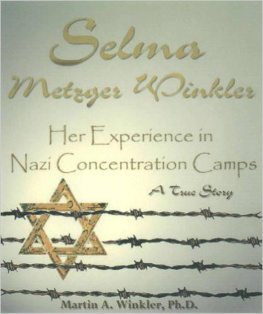
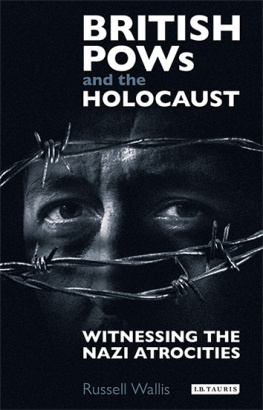

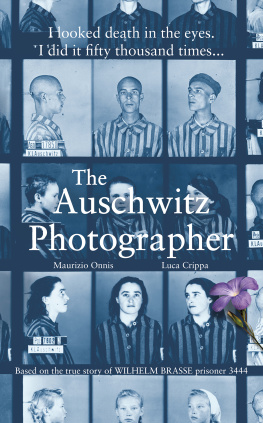
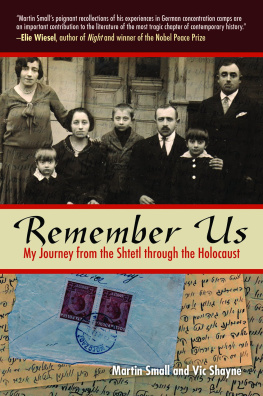

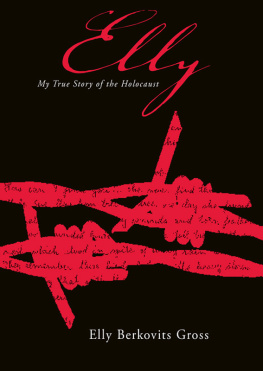
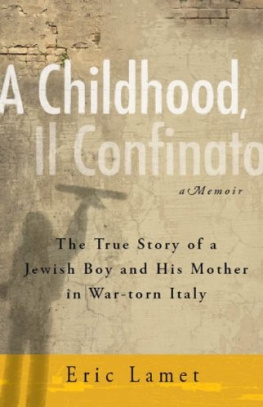
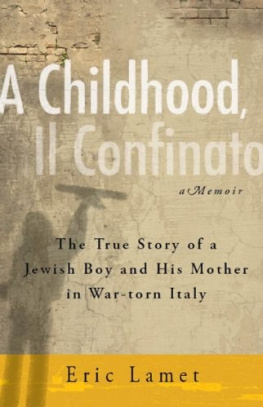

 The paper used in this publication meets the minimum
The paper used in this publication meets the minimum